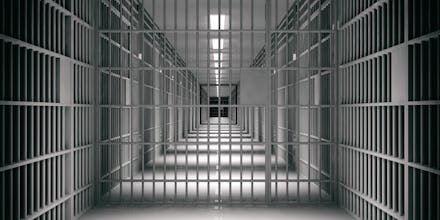New York is using controversial prison labor to make hand sanitizer

People are rushing to stock up on toilet paper, masks, hand sanitizer, and anything else they think can help ward off coronavirus. Due to shortages of these key supplies, New York state plans to create its own hand sanitizer, which by itself isn't a bad idea. It's who the state plans to rely on for this plan that is prompting plenty of controversy.
In a press conference Monday, New York Gov. Andrew Cuomo (D) shared the state's goal of producing 100,000 galloons of New York State Clean hand sanitizer. With Cuomo calling it a "superior product," the hand sanitizer will be stronger than what you usually find, with a 75% alcohol content as opposed to the average 60%.
The NYS sanitizer won't be available for public purchase. Instead, it will be given away to schools, prisons, the MTA, and government agencies. Seems great, right? Production is pretty low-cost, too, with Business Insider reporting that each gallon will cost about $6 to make.
But when something is cheap, it's worth looking at closely. New York may be able to pump out gallons of hand sanitizer on the cheap, but that's because the state will rely on prison labor from the Great Meadow Correctional Facility in Washington County, north of Albany.
Most people are unaware of it, but the United States heavily relies on prison labor, and the type of products made vary. In 2002, incarcerated people first started taking up call center work. Whole Foods once sold products — including goat cheese and tilapia — that were made using prison labor. And when wildfires were raging, California sent out incarcerated people who made only $1 an hour, plus $2 a day, to fight the blazes in what is unquestionably risky work. Last year, incarcerated people in 17 states went on strike, refusing to eat or work in protest of "modern-day slavery."
According to the DOJ's Federal Prison Industries program 2017 annual report, about 17,000 incarcerated people work at over 50 government factories, farms, and cell centers across the U.S. For its hand sanitizer, NY will rely on CorCraft, a company included in the state's Department of Corrections and Community Supervision that uses more than 2,000 prisoners for work.
The issue here isn't just the use of incarcerated people's labor, but also their lack of compensation for it. In New York, incarcerated people make between $0.10 to $0.33 per hour. State Sen. Zellnor Myrie introduced legislation to raise the minimum wage for incarcerated people to $3 per hour.
In response to Cuomo's hand sanitizer announcement, Myrie tweeted, "Will we pay the incarcerated people who made these an adequate salary?"
Making hand sanitizer isn't the end of New York's plans to use its prison population in the coronavirus fight. Should there be too many deaths, incarcerated people at Rikers will be the ones to bury the bodies.
Prisons and jails are already more vulnerable to outbreaks. Even the basic prevention tactics like washing or sanitizing your hands may not be possible. For example, there may be no soap available, as is reportedly the case with the Metropolitan Detention Center in Brooklyn. There may not be hot or even remotely clean water — something the Metropolitan Detention Center also struggled with over the summer.
Cuomo said that some of the hand sanitizer will be sent to prisons. That may be the case, but because it contains alcohol, hand sanitizer is widely considered to be contraband. Regardless, it's wrong to use someone's labor without proper compensation — and even worse when remembering they are exceptionally vulnerable to any pandemic that strikes.